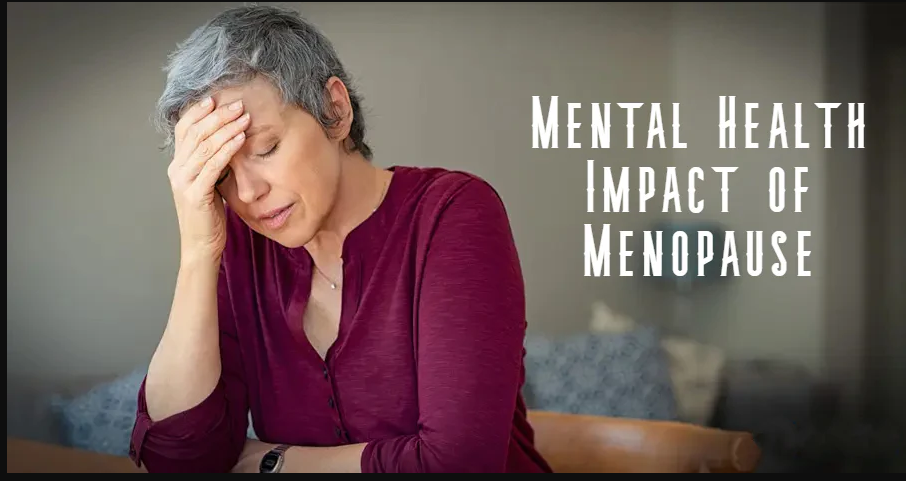Menopause is a natural stage in a woman’s life that brings several physical changes. However, many people don’t realize that it also has a deep effect on mental health. Hormonal shifts during menopause can lead to mood swings, anxiety, and even depression. Many women going through menopause in Ontario seek depression treatment in Ontario to help them cope with these emotional changes. It’s important to understand how menopause affects mental well-being and what support options are available.
Table of Contents
How Hormonal Changes Affect Mental Health?
During menopause, the levels of estrogen and progesterone in a woman’s body begin to drop. These hormones are not just linked to reproduction — they also help regulate mood, sleep, and emotions. When their levels drop, women may experience sadness, low energy, and irritability. These are all common signs of depression, which affects many women during the menopausal stage.
On top of this, physical symptoms like hot flashes, sleep issues, and fatigue make it even harder to stay mentally balanced. These physical discomforts often increase emotional stress and can trigger or worsen depression.
Understanding Depression During Menopause
Menopausal depression doesn’t always look the same for every woman. For some, it feels like a constant sense of sadness or emptiness. Others may struggle with motivation, confidence, or interest in things they once enjoyed. Some may cry more often or have trouble concentrating.
It’s important to remember that these feelings are not a sign of weakness. They are common during menopause and are related to changes happening in the brain and body. Seeking help from qualified depression therapists can make a big difference in managing these symptoms.
Anxiety and Irritability: Common Companions
Along with depression, many women face increased anxiety during menopause. You might feel nervous, restless, or overwhelmed by small problems. Irritability is also common and can affect relationships and daily life. These feelings can create a cycle — anxiety can lead to poor sleep, and poor sleep can make anxiety worse.
Talking with a therapist who understands menopause can help you identify these patterns and learn ways to manage them. With the right support, you can take control of your emotional health.

The Role of Mental Health Services
Access to quality mental health services is essential for women going through menopause. These services may include therapy, group counseling, or support groups for women going through similar changes. Some women may benefit from medication prescribed by a mental health provider, especially if depression symptoms are severe.
Women in Ontario have access to both in-person and online mental health options. It’s important to find a provider who understands how menopause affects mental health and can offer practical, supportive care.
Lifestyle and Self-Care Tips
While therapy and treatment are key, there are also steps women can take at home to support their mental well-being:
- Stay Active: Exercise helps release feel-good chemicals in the brain and improves sleep.
- Eat Well: A balanced diet supports hormone levels and brain health.
- Sleep: Try to keep a regular sleep schedule and create a calming bedtime routine.
- Connect with Others: Talking with friends or joining a support group can help reduce feelings of loneliness.
- Limit Alcohol and Caffeine: These can affect sleep and mood.
Small daily changes can make a big difference in your mental outlook.
When to Seek Help?
If you’ve been feeling sad, hopeless, anxious, or disconnected for more than two weeks, it may be time to seek professional help. This is especially important if these feelings are interfering with your work, relationships, or daily life. Many women hesitate to get help because they think “this is just part of aging.” But you don’t have to suffer in silence.
There are depression therapists who are trained to help women manage these specific life changes. You are not alone — and support is available.
How Partners and Families Can Help?
Menopause doesn’t only affect the woman going through it. Her relationships can also be impacted. Partners and family members should try to be understanding and supportive. Open communication, patience, and empathy go a long way. If your loved one is struggling, encourage her to explore mental health services and offer to go with her to appointments if needed.
Renewed Mental Health Group – A Supportive Place for Healing
If you or someone you care about is experiencing emotional challenges during menopause, Renewed Mental Health Group is here to help. We understand how overwhelming this life stage can be. Our experienced team offers compassionate care and effective treatment for depression and anxiety related to menopause.
Located in Ontario, our clinic provides both in-person and virtual therapy sessions to fit your needs. Whether you’re looking for one-on-one counseling or group support, we offer a range of services tailored to your situation. Our licensed professionals focus on understanding your unique experience and guiding you through it with kindness and skill. You don’t have to go through this alone — let Renewed Mental Health Group support your journey to emotional wellness.

Final Verdict
Menopause is a major life transition, and it’s normal for it to affect your mood and mental well-being. The good news is, you don’t have to face it alone. With the right support — from friends, family, or professional care — you can feel better and find peace of mind.
If you’re in Ontario and struggling with emotional symptoms, remember that depression treatment in Ontario is available also Telepsychiatry Mental Health effective. Reaching out is a sign of strength, not weakness.
Don’t ignore how you feel. Depression and anxiety during menopause are real, but with support, you can overcome them. Help is out there, and you deserve to feel well — inside and out.



